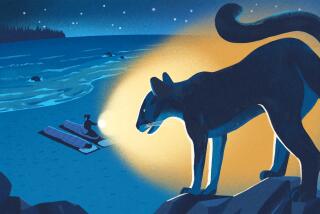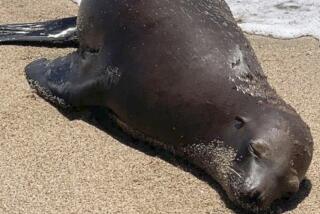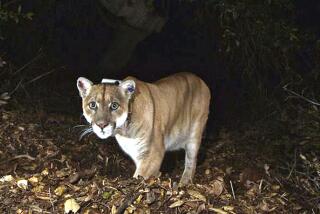Hunters and the Hunted
When all else fails, ask for further study. That is the approach being taken now by the Sacramento-based Mountain Lion Preservation Foundation to the proposed resumption, after a 15-year moratorium, of the sport hunting of cougars in California. More study often is a cop-out, but it is justified in this instance. Existing data on the number of lions in the state--and their chances of surviving as a species, with or without hunting--are conflicting and incomplete.
Thus the state Fish and Game Commission should reject today plans for a 79-day-long 1987 hunting season in which a maximum of 210 cats could be killed. The commission should accept the proposal of the foundation to engage Dr. Maurice Hornocker, director of the Wildlife Research Institute, to make an independent assessment of the lion population in California. The institute is conducting similar studies in New Mexico, Idaho and Montana.
This year’s debate over the proposed lion hunt has become highly emotional, pitting hunters’ rights versus animal preservation. It has little to do with game management, livestock depredation or even fears of harm to humans--triggered by two attacks on children in an Orange County wilderness park last year. The Orange County Board of Supervisors is among the local governments that oppose the hunting season.
Hunting is a privilege, not a right. Along with the eagle, the bear, the wild river and the far mountain peak, the lion is a symbol of our dwindling wilderness heritage that deserves respect and protection. As Henry David Thoreau said, “We need the tonic of wildness . . . . We can never have enough of Nature.”






